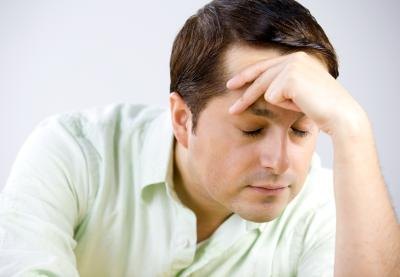
If you experience fatigue and headaches after eating, you might be suffering from a condition known as reactive hypoglycemia, also called postprandial hypoglycemia, which is characterized by decreased blood glucose levels one to three hours after a meal. It's possible to exhibit symptoms of this condition without actually having it, so if you develop fatigue and a headache after eating, visit your doctor. Other symptoms of reactive hypoglycemia include anxiety, trembling, weakness, sweating, mood changes and light-headedness.
About Glucose
Hypoglycemia occurs when blood glucose levels drop below normal ranges. Foods such as rice, fruit and bread contain carbohydrates, which are the main dietary sources of glucose. Glucose provides the body with energy to carry out daily physiological functions. After eating, glucose enters the bloodstream via the small intestine and travels to muscle, liver and tissue cells. Insulin helps these cells use glucose for energy. The liver and muscles store excess glucose as glycogen for future energy needs. Glucose can be converted to fat and stored in fat cells, causing weight g
Reactive Hypoglycemia
Reactive hypoglycemia results from the overproduction of insulin followed by the release of stress hormones. After eating, the pancreas secretes too much insulin, which quickly and drastically reduces blood glucose levels. In an effort to naturally prevent your blood glucose levels from "crashing," the adrenal glands release large amounts of the stress hormones epinephrine and cortisol to quickly boost blood glucose levels.
Hypoglycemia Unawareness
Type 1 and 2 diabetics who exhibit no warning signs of low blood glucose have hypoglycemia unawareness, which develops when the body changes its reaction to low blood glucose levels. After recurring episodes of hypoglycemia, the adrenal glands cease production of epinephrine and cortisol when blood glucose levels are too low, a condition called hypoglycemia-associated autonomic failure.
Diagnosis
To diagnose reactive hypoglycemia, your doctor will inquire about your symptoms and test your blood glucose while you are experiencing them. He will check for the alleviation of your symptoms after eating or drinking items with 15 to 20 g of sugar. A blood glucose measurement of 70 mg/dL at the onset of your symptoms as well as after eating validates his diagnosis.
Other Causes
Food allergies sometimes cause headaches and fatigue after eating. For example, people with milk allergies might develop a headache after eating yogurt, butter, cream or cheese. The body releases the chemical histamine during an allergic reaction, which causes sinus cavity swelling. This inflammation leads to headaches. Caffeine dependency develops over time in people who excessively consume caffeinated beverages on a regular basis. If you reduce or cease caffeine consumption abruptly, you might experience symptoms of caffeine withdrawal characterized by mental fogginess and irritability in addition to fatigue and headaches.
www.livestrong.com





No comments:
Post a Comment